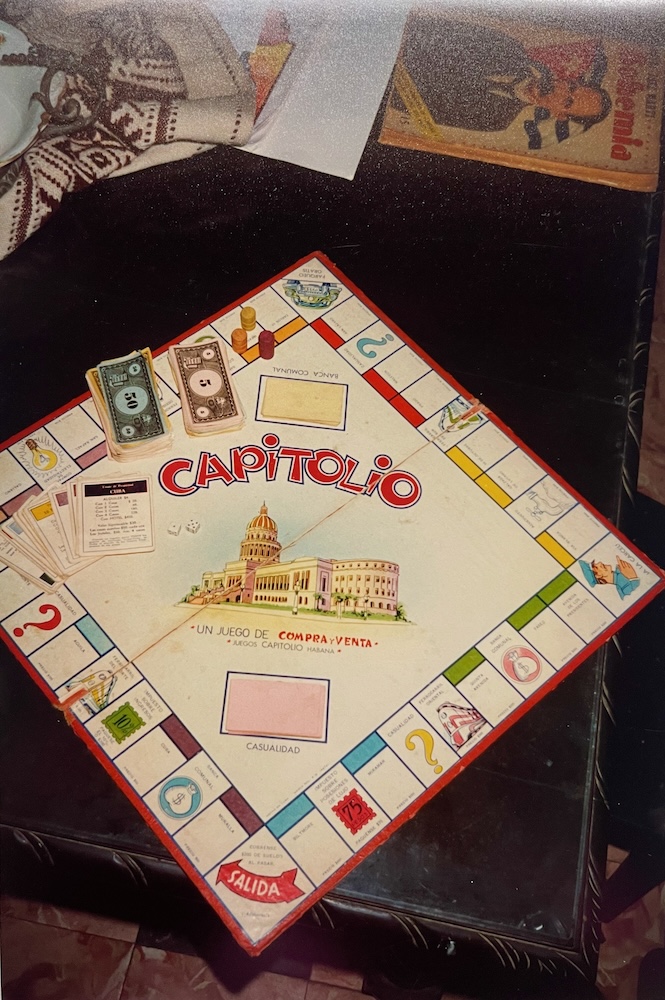At the time of the Cuban Revolution of 1959, most average Cubans were deeply critical of the United States’ support for military dictatorships (like Cuba’s own under Fulgencio Batista) as well as monopoly capitalism. Yet Cubans were also enamored of Parker Brothers’ legendary board game, Monopoly, which in Cuba was available in translation as Monopolio. Irony aside, Fidel Castro’s declaration of a socialist regime in 1961 meant that Cubans needed a new leisure game that would not compete or otherwise undermine the anti-imperialist values on which his legitimacy depended. Incredibly, my own family kept the Ministry of Industries’ cultural solution: Capitolio, a revolutionary substitute for Monopolio. Here players’ goal was to avoid massive luxury taxes on unnecessary goods, contribute to national infrastructure, deposit money in cooperative lending banks and, ironically, re-build the Capitol Building and restore Cuba’s 1940 Constitution. Not surprisingly, while sales of the game likely boomed, its production ended early on. JUNE 1995.
